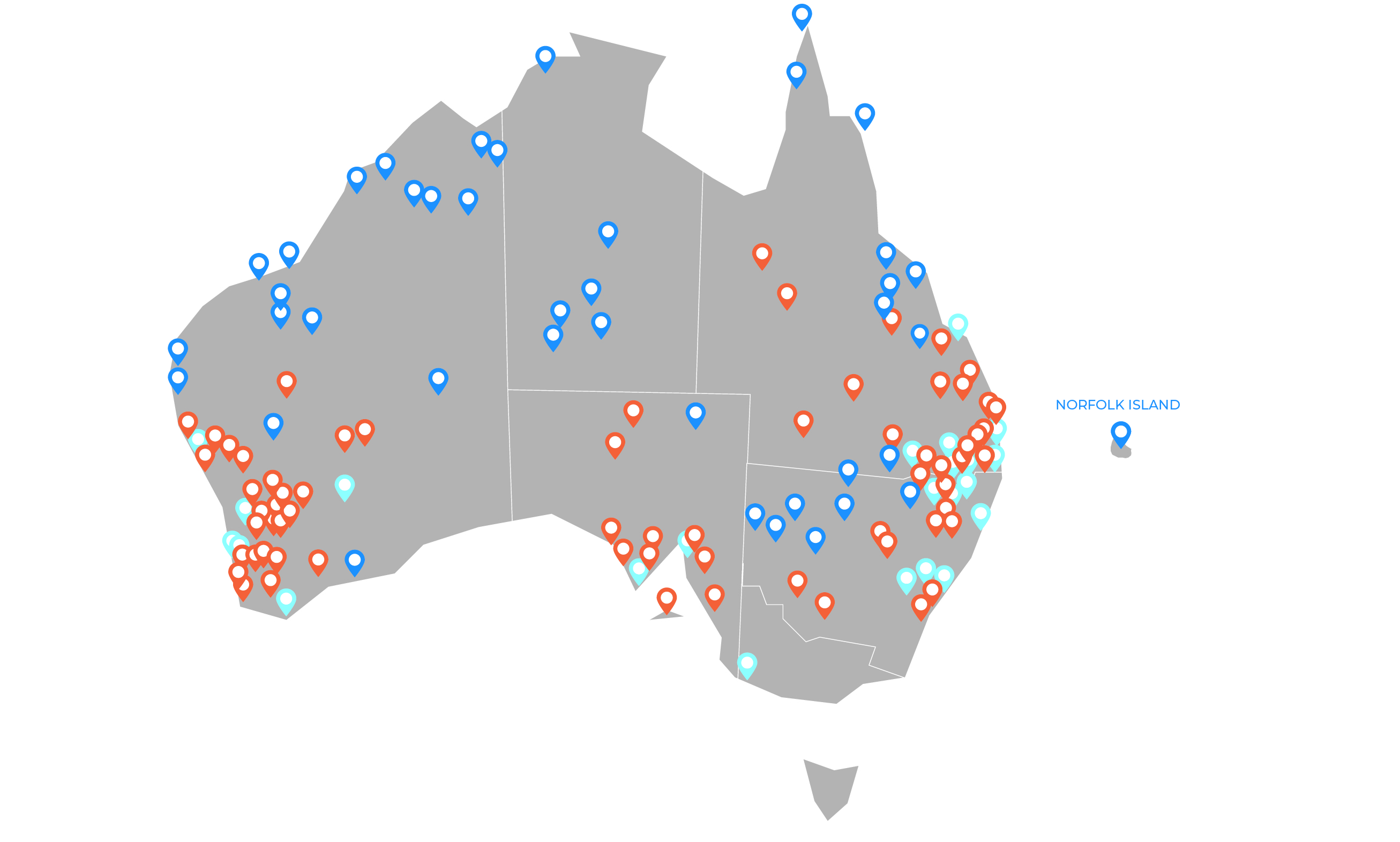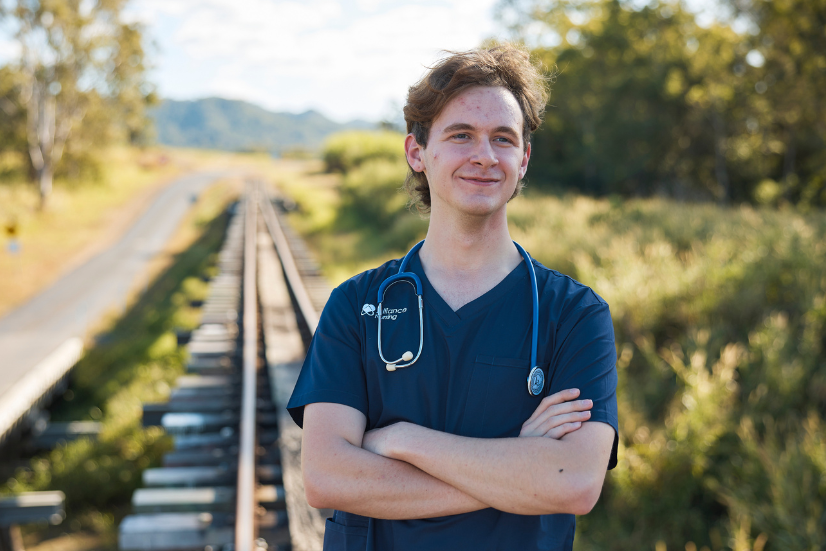WHAT'S the difference?
Nearly 7 million Australians call regional, rural, and remote communities home. These areas are more than just places on a map, they’re vibrant, tight-knit communities surrounded by spectacular landscapes and steeped in rich cultural heritage.
For skilled nurses, these locations offer an incredible opportunity to make a meaningful impact on these diverse and resilient populations. But what is the difference between a regional, rural and remote nurse? How do these roles shape your responsibilities and what do the healthcare settings of these communities look like? Let’s explore.
 Clinical facilities in regional (light blue), rural (orange) and remote (dark blue) locations.
Clinical facilities in regional (light blue), rural (orange) and remote (dark blue) locations.
REGIONAL NURSING
Regional nursing can be a fantastic first step if you are considering rural or remote nursing. It allows you to build skills in a supportive, resource-rich environment while enjoying strong community ties.
Regional nursing puts you at the heart of larger towns or small cities, often with populations greater than 50,000. These locations are full of life, offering the perfect blend of community spirit and modern amenities.
In Bendigo (Vic), you’ll find bustling farmers markets, art galleries and a boutique cinema, all surrounded by its rich gold rush history. Mackay (Qld) is a paradise for outdoor lovers, with national parks, tropical beaches, recreational fishing, and kayaking on the Pioneer River. Meanwhile, the vibrant coastal town of Bunbury (WA) is a balance of contemporary living and natural beauty with pristine beaches, a thriving arts scene and a relaxed lifestyle.
Healthcare settings in these areas are well-equipped and feature:
- Hospitals with specialised services like surgery, maternity and oncology.
- Access to allied health professionals, mental health support and aged care.
- General practitioners, diagnostic facilities, and community health centres.
- Transport and referral systems linking patients to metropolitan hospitals.
Rural nursing
Life as a rural nurse is profoundly fulfilling and all about delivering high-impact care in close-knit communities.
As a rural nurse, you’ll become the cornerstone of smaller towns and farming communities, working closely with patients and families in a way that feels deeply personal. These welcoming communities are places where you can immerse yourself in the rhythms of local life.
In Lismore (NSW), you might find yourself dancing at the annual Lantern Parade or strolling through creative arts festivals. Albany (WA) offers sweeping coastal views and a chance to spot whales during migration season. While Tully (Qld) is famous for its bananas and wet weather – perfect for lush rainforest walks, fishing trips and white-water rafting. Get placed on Norfolk Island (NSW) and you'll be part of a tight-knit island vibe, where Bounty Day and fresh local produce are part of everyday life. Or Kangaroo Island (SA), which offers wildlife encounters, boutique wineries and rugged coastal beauty.
Rural nursing roles are hands-on and diverse, often with fewer clinical resources. You’ll frequently take on extended responsibilities that go beyond traditional nursing roles. This might consist of performing minor procedures, managing chronic diseases or responding to emergencies. These urgent health needs may include stabilising trauma patients, handling acute emergencies like heart attacks or strokes, or addressing complications in maternity care.
Healthcare settings in rural areas include:
- Small to medium hospitals offering a mix of acute and general care.
- Community health centres, general practices, and outreach programs.
- Limited access to specialist services, often requiring patient transfers to regional centres.
- Aboriginal Community Controlled Health Organisations (ACCHOs) who deliver holistic, comprehensive and culturally appropriate healthcare.
Remote nursing
The role of a remote area nurse is challenging, but it’s also some of the most rewarding work you’ll ever do. You’ll take on a leadership role, providing care that transforms lives, while enjoying experiences that few others will ever have.
Remote area nursing takes adventure to a whole new level. Imagine living in stunningly unique locations where you can wake up to the sound of the ocean, spend your days immersed in meaningful work and explore untouched landscapes during your time off.
Places like Georgetown (Qld) in the heart of the Etheridge Shire, where gold rush history meets warm country hospitality. Or Oodnadatta (SA) which offers true outback isolation along the iconic track, with deep Aboriginal heritage. You might also find yourself in Groote Eylandt (NT) or Eucla (WA) - where unforgettable landscapes and genuine community connection are all part of the experience.
Remote area nurses (or RANs) have an exceptionally broad scope, providing primary healthcare, emergency response, and ongoing care for entire communities. Your role requires autonomy, resilience, and cultural sensitivity.
Healthcare settings in remote areas would typically include:
- Small community health posts or clinics led by remote area nurses.
- Telehealth and air retrieval services for emergencies.
- Minimal access to allied health or specialist care.
- Aboriginal Community Controlled Health Organisations (ACCHOs) who deliver holistic, comprehensive and culturally appropriate healthcare.

Ready to make a difference?
These roles are as diverse as the communities they serve. Whether you’re drawn to regional cities, rural towns, or remote outposts, you’ll need adaptability, a broad skill set and a dedication to providing care where it’s needed most.